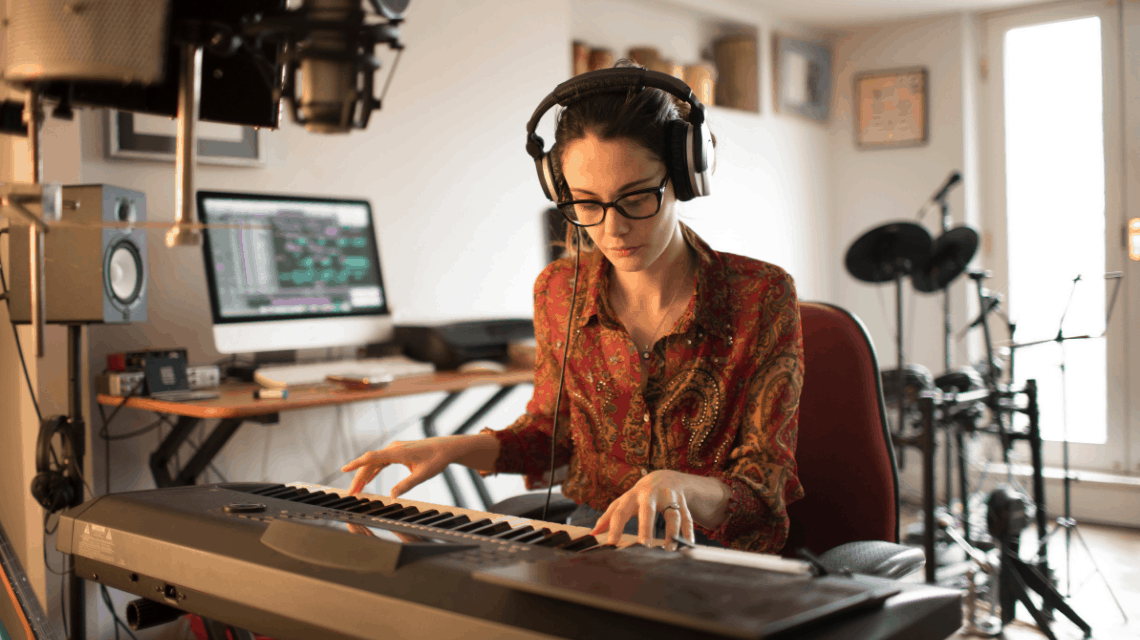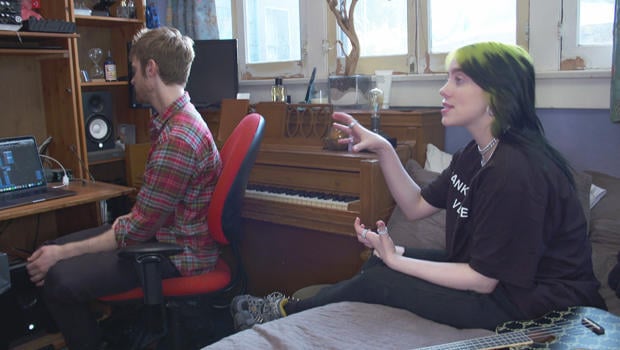How To Build A Home Studio On A Budget

This piece comes from professional musician Chris Senner. Read on for his advice on how you can create your own home studio while on a budget!
Building a home music studio has become more accessible throughout the years with the help of technology. The days of which bands/artists needing to record in fancy studios have passed, and we are now seeing hit songs recorded in bedroom/basement studios.

In this article, we will discuss how musicians can build their music studios on a budget. The good news is that this is entirely possible.
It is important to note that we will be displaying budget products, yet you can always upgrade to more expensive options in the future. This being said, while these products are the cheaper end of the spectrum, they’re still solid products. Often people try to cut corners with audio equipment, and it ends poorly.
We will be focusing on a budget studio setup that is affordable and viable for making and recording music.
How To Build Your First Home Music Studio
Below we will give you an in-depth look at exactly what you will need to get your first music studio up and running.
The Room
Before we get into equipment, let’s take a look at the most common types of locations for your first studio.
The first example that comes to mind is the bedroom studio. Typically, a bedroom studio will be a bit smaller; however, it can still be effective.
I’ve recorded songs with my band in a bedroom that have gone on to get millions of streams, and I’ve also seen a ton of examples in which songs recorded in bedroom studios have gone viral. A great example of this is Lauv. Lauv recorded his first EP in his bedroom and created a number one chart-topping pop song.
The one downside to having your studio in your bedroom is the fact that you might not have a dedicated vocal room.
In some cases, producers will convert their closet space into a vocal booth just to take this a step further.
This being said, it’s still possible to capture great recordings without a dedicated vocal booth.
Another option that is seen commonly is a basement studio. Basements can work better than bedroom setups provided that they can sometimes provide more space/higher ceilings.
Should you have a large basement, you can even set up a control room and a room for vocals or drum recording.
Let’s take a look at the essential gear needed to build your studio.
You will notice that two of the essential gear pieces you will need are a computer and a digital audio workstation (DAW).
1) Computer
When building your first music studio, your computer is going to be your most important purchase. Having a fast computer will allow you to increase your workflow and eliminate stress when working.
If you have a moderately new PC or MacBook, you will be just fine; however, if you have extra money to spend, this is where you will want to spend it.
For a simple studio setup, having a reliable computer will go the distance, and it will be something you will be able to use for years. Get the fastest PC or MacBook that your budget allows for.
2) DAW
Your DAW is your holy grail. You will do your recording, production, and mixing in your DAW. When it comes to DAWs, there are many different DAW’s that will get the job done.
The best thing that you can do as a music producer is to familiarize yourself with the different terminology of DAWs. You will notice that most DAWs will all do similar things, provided you understand the language and where to look for certain things.
Here’s a list of some incredible DAWs:
- Cubase
- Ableton Live
- Reaper
- Pro Tools
- Logic Pro X
- Studio One
- FL Studio
The price will vary significantly with DAWs, and it’s essential to note your budget. If you are looking for the cheapest option that is still quality, I would recommend Reaper or FL Studio.
Free DAWs
Now that we looked at some of the best DAWs you can buy, let’s look at a few free options.
It’s important to note that there will be some limitations when looking at even the best free DAW software available.
I recommend testing out a few free DAWs before purchasing, just so that you can get the hang of it.
Here’s a list of the best free DAWs available:
- Cakewalk By Bandlab
- LMMS
- Garageband
- Stagelight
Out of these options, Cakewalk is by far the winner in terms of being the closest to an actual DAW. Another solid pick is LMMS, which is modeled entirely after FL Studio.
3) Microphones
When getting started with your first music studio, you will need a couple of microphones. You will not need anything that is crazy-expensive.
I recommend a set of Shure SM57‘s for recording things such as guitars, drums, or pianos, and a Shure SM58 for vocals.
4) Studio Monitors
Studio monitors are essential for a solid music studio on a budget. You will be listening to your mixes and recordings daily, so having a reliable set of monitors is key.
For this, I would recommend the JBL 305 P monitors.
5) Audio Interface
Should you want to record audio from vocals or any instruments, you will need an interface.
What’s nice here is that you can get quality picks for pretty cheap.
A solid choice for this department would be the Focusrite Scarlett 2i2.
6) Headphones
A solid set of headphones will be essential for recording any music. Whether this is vocals, drums, guitars, or keyboards, you will want a nice set of headphones.
A nice set of headphones will last you years should you take proper care of them, and they will make a world of difference when recording.
The pick here is the Sennheiser HD280 Pros, as they are inexpensive yet efficient.
7) XLR Cables
You will need 3 XLR cables for your home studio. I would recommend getting 25 ft cables for your instruments and a set of shorter lines for your monitors.
The brand name here is Mogami when it comes to industry standards. This being said, Mogami is expensive. I would recommend a set of Pro Co EXM cables to get the job done.
8) Mic Stands
A couple of mic stands will help when it comes to recording. I would recommend a boom stand that will work for recording drums/guitar as well as a standard mic stand for vocals.
9) Studio Desk
A desk is often forgotten. My advice here would be to use whatever you own in the beginning. This could be a set of foldable tables or a random desk that you have.
Wrapping Up
If you’ve made it this far, you now should have a solid understanding of precisely what you need to build your budget music studio.
Focus on the computer and DAW initially, and over time, slowly start to expand and upgrade your equipment.
At the end of the day, the recording industry has changed immensely to the point where you no longer need a costly setup to record great music.

